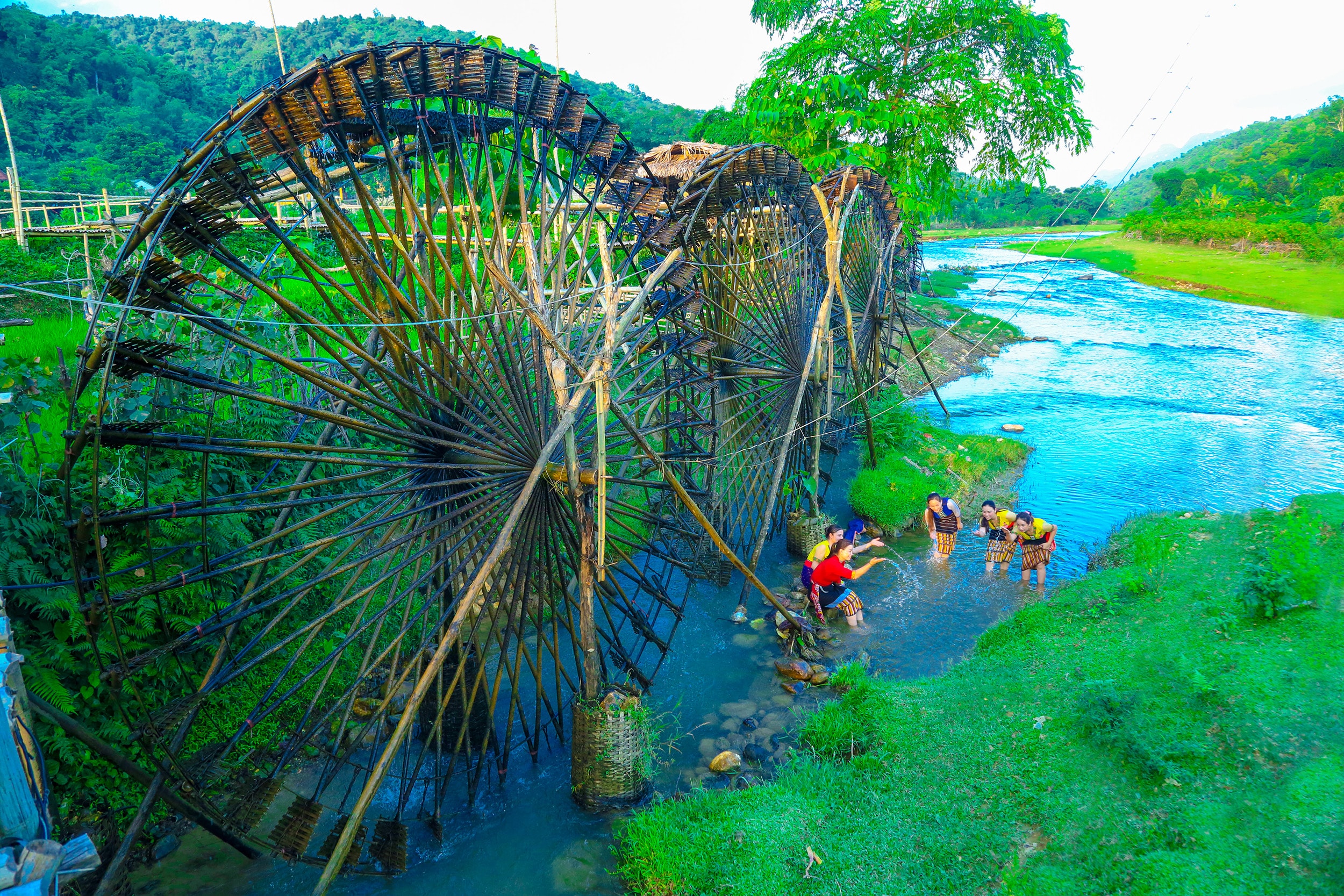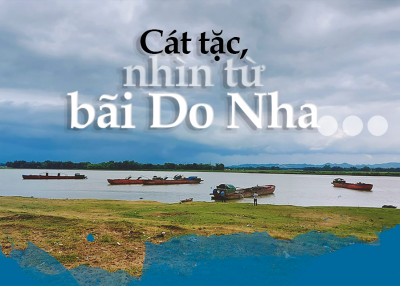
PV:Nghe An is the largest province in the country, including mountainous areas with a large number of ethnic minorities. Could you tell us some of the unique and outstanding features of the ethnic cultures in Nghe An?
Ms. Quach Thi Cuong:Nghe An has 6 main ethnic groups, of which 5 ethnic minorities including Thai, Tho, Mong, Kho Mu and O Du live in 11 mountainous districts and towns with a population of about 491,000 people, accounting for nearly 15% of the province's population. Along with the diverse but unified flow of Vietnamese culture, the ethnic communities of Nghe An province have affirmed their long revolutionary history, a traditional culture with strong identity, richness and diversity.
Currently, awareness of the position and role of national culture and the value of cultural heritage of ethnic groups in the province has been raised and improved significantly. The ideology, ethics and lifestyle of the village community have many positive changes, proactively absorbing good and new things in labor, production, applying science to life, actively participating in movements and social welfare activities, mutual love and affection, together eliminating hunger, reducing poverty, building a cultural and civilized life.
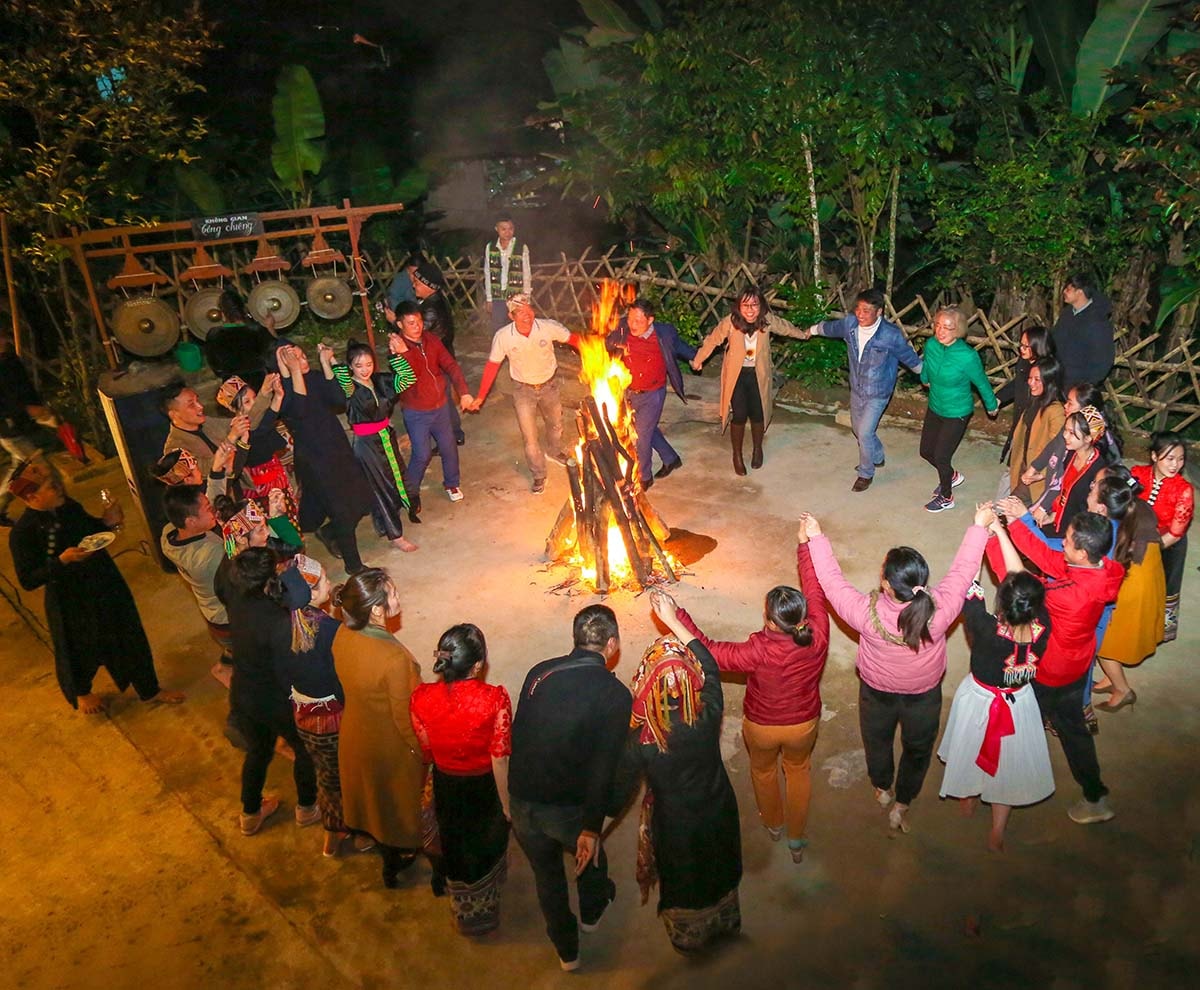

One of the unique and outstanding features of the culture of ethnic groups in Nghe An is the extremely diverse and rich treasure of intangible cultural heritage, which is continuously preserved, conserved and promoted by all classes and generations. Thanks to that, values such as folk songs, folk music, folk dances in the countryside of Nghe An are preserved and have a distinct, unique and attractive sound. Like Vi and Giam folk songs in the lowlands, folk songs of ethnic minorities in the mountainous areas of Nghe An have left a strong impression and touched people's hearts. Ethnic minorities in Nghe An have promoted their sense of national pride to preserve traditional cultural identities such as stilt house architecture, brocade weaving, costumes, cuisine, festivals, languages, writing, and folk knowledge systems that are still preserved and applied in daily life.
Another unique feature is the festival culture. Currently, Nghe An has hundreds of festivals associated with relics and are distributed quite evenly throughout regions, localities, and ethnic groups. Among them, there are many typical festivals that are maintained and organized regularly, with a tendency to develop and expand to attract cultural exchange. Festivals in Nghe An from the lowlands to the mountains have created a highly socialized community cultural environment, and the self-nature of cultural subjects has been and is being promoted. Through festivals, the masses can exchange, learn about their origins, participate in folk cultural games and be creative in activities.
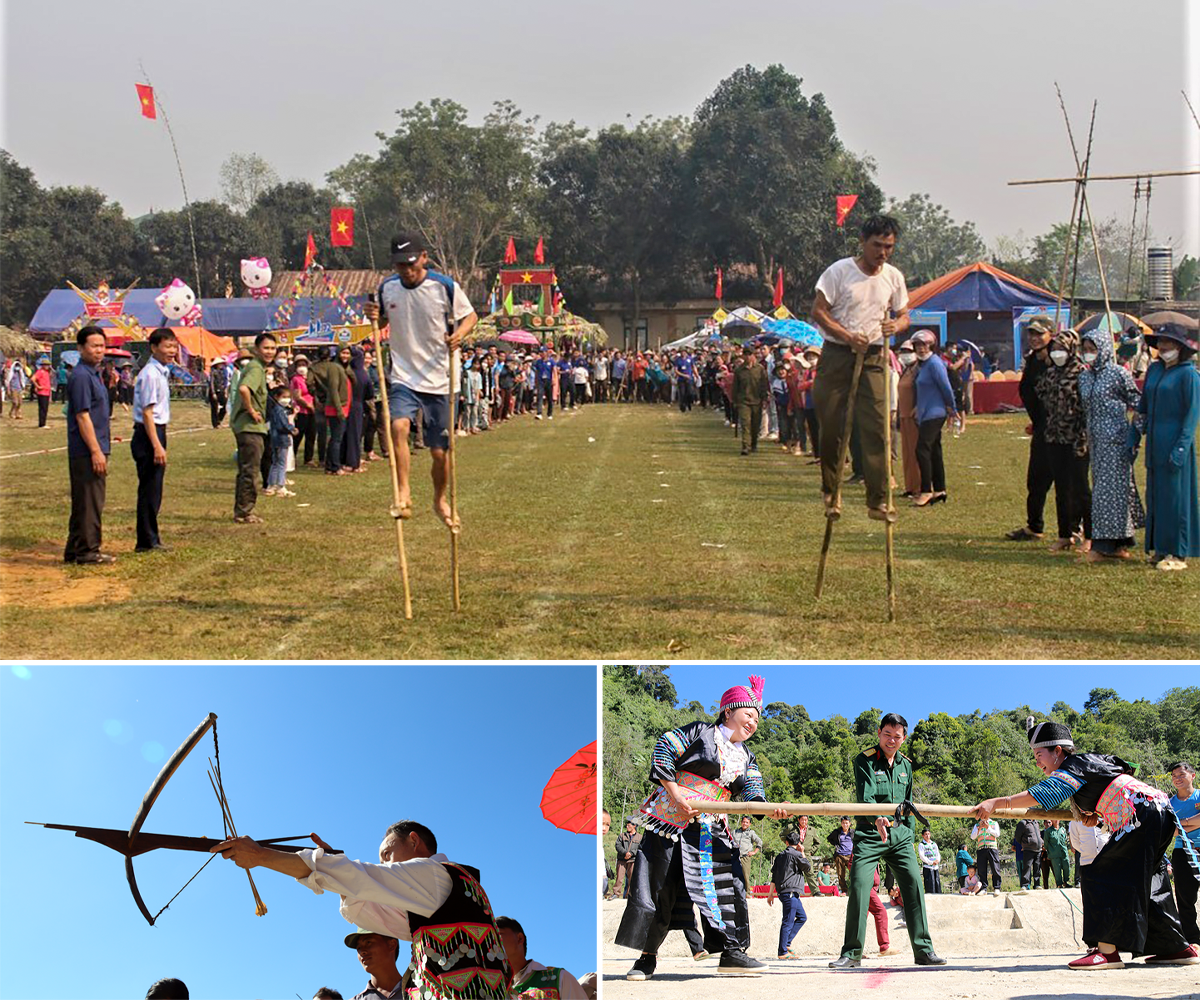
Through cultural, artistic, physical education and sports activities, grassroots professional models such as information art teams, radio stations, specialized clubs, law bookcases, etc. have had positive impacts, meeting the people's needs for cultural enjoyment and creation, becoming a driving force for socio-economic development, national defense and security. The culture of Nghe An province's ethnic groups has been integrating into the cultural flow, absorbing cultural quintessence from outside, on the other hand, always being conscious of preserving and promoting traditions, integrating but not dissolving, still maintaining the cultural identity of Nghe An.
PV:It can be affirmed that preserving and promoting the traditional cultural values of the Vietnamese ethnic groups is considered the top priority in the process of promoting and integrating with the quintessence of human culture. And since 2008, the Prime Minister has decided to take April 19 every year as "Vietnam Ethnic Culture Day". Could you please tell us more about the meaning of this as well as the activities in response to the annual "Vietnam Ethnic Culture Day" of Nghe An province?
Ms. Quach Thi Cuong:On November 17, 2008, the Prime Minister signed Decision No. 1668/QD-TTg on organizing the "Vietnam Ethnic Culture Day" (April 19). This is a practical and meaningful activity to preserve, honor and promote traditions and cultural identities, contributing to improving the spiritual and cultural life of ethnic groups in Vietnam, at the same time, educating the tradition of patriotism, national pride, contributing to consolidating and strengthening the strength of the great national unity bloc. Since then, "Vietnam Ethnic Culture Day" has been an annual event that plays an important role in preserving and promoting the cultural identities of ethnic groups, regions and areas.
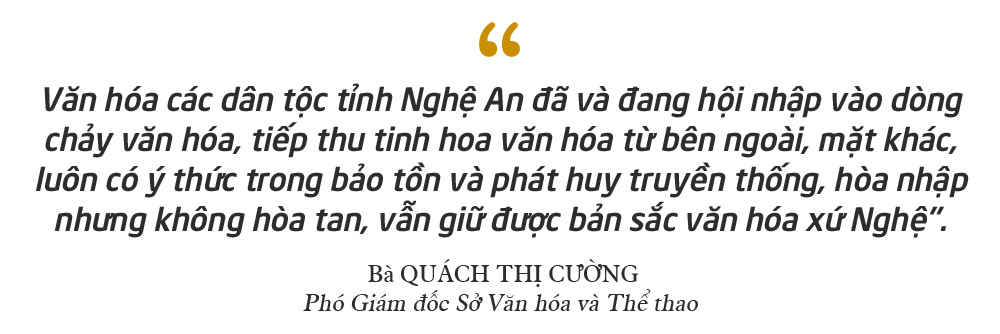
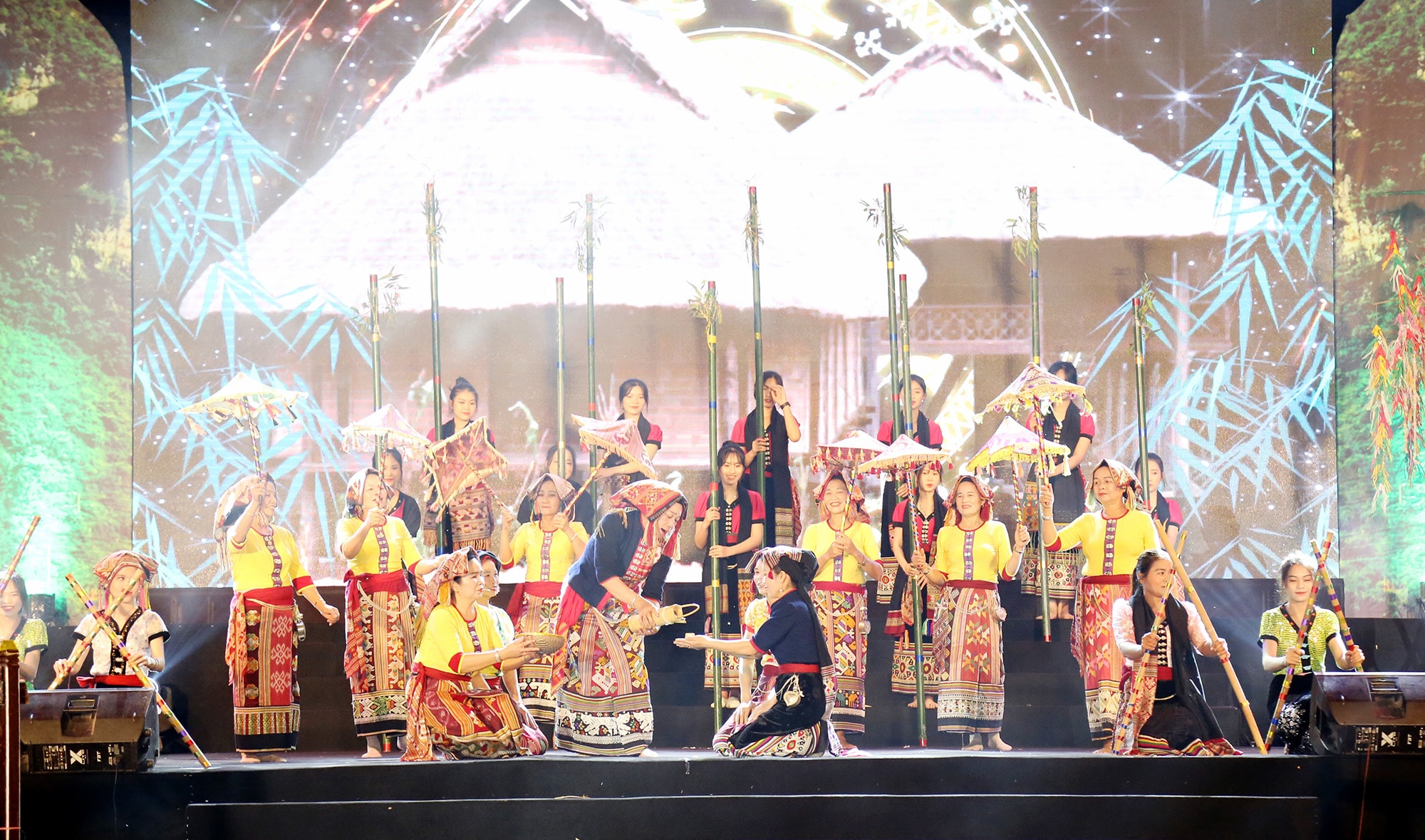
In our province, the activities in response to "Vietnam Ethnic Culture Day" are organized by the Department of Culture and Sports in coordination with localities with many forms and rich content. From 2008 to now, the Department of Culture and Sports has taken turns coordinating with the People's Committees of mountainous districts and towns to organize art programs to celebrate "Vietnam Ethnic Culture Day" with many different scales, combined with the organization of the Provincial Ethnic Minority Sports Competition; coordinated with the Provincial Ethnic Minority Committee to organize mass art festivals of ethnic minorities.
In localities, "Vietnam Ethnic Culture Day" is regularly organized by Party committees and authorities, with many rich and diverse activities such as: Cultural and artistic exchanges; Ethnic minority mass art festivals; ethnic costume performances; ethnic cultural exhibitions; Ethnic beauty contests, ethnic sports competitions... receiving the participation of officials and party members, especially the response of many ethnic people. These activities create an exciting atmosphere, strengthening solidarity in the ethnic community. In addition, through these activities, it is also an opportunity to promote and introduce the cultural beauty and tourism potential of Western Nghe An - an attractive and friendly destination.
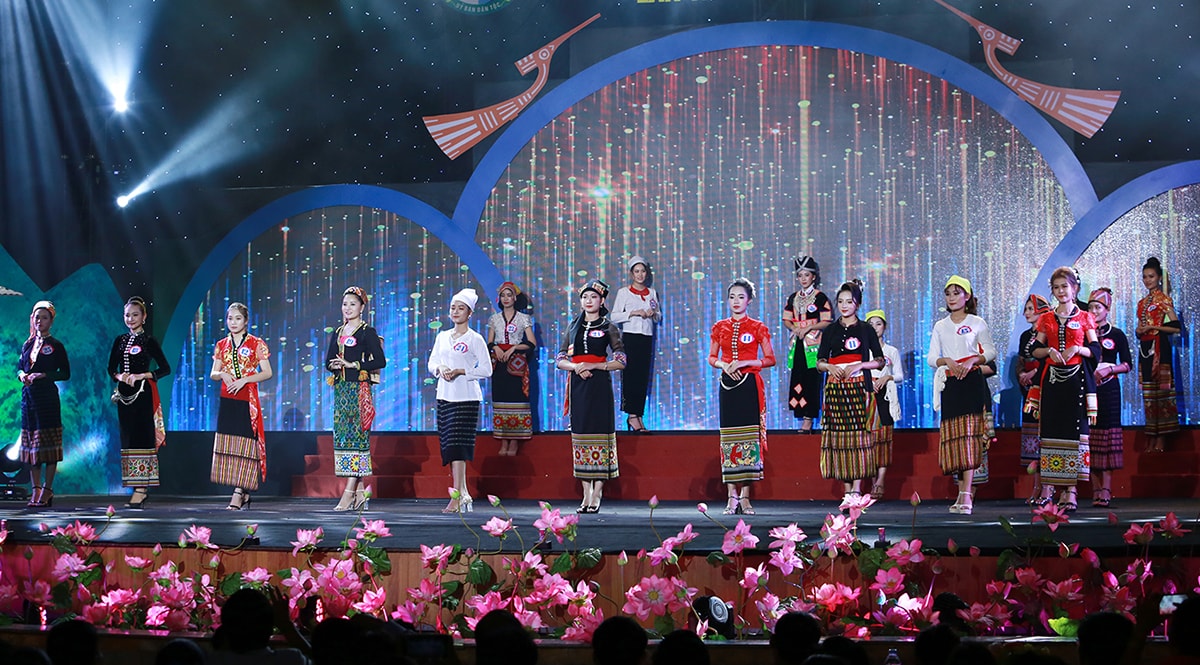
PV:Thus, the annual “Vietnam Ethnic Culture Day” (April 19) has become a tradition, embedded in the consciousness of the people, actively contributing to the preservation and promotion of traditional cultural values of ethnic groups. So, in recent times, in addition to the activities responding to “Vietnam Ethnic Culture Day”, what activities has the Department of Culture and Sports implemented to preserve and promote the cultural traditions of ethnic groups?
Ms. Quach Thi Cuong:In recent times, activities to preserve and promote traditions and national cultural identities have been implemented in accordance with the characteristics and actual situation of each locality, creating a spillover effect, contributing to raising awareness of all levels, sectors and people about the position and role of culture in socio-economic development. The Department of Culture and Sports has directed public service units such as the Provincial Cultural Center, Traditional Arts Center, etc. to strengthen direction and support for cultural models, information, and models of preserving intangible culture of ethnic groups in the area.
In mountainous districts, many types of clubs on literature, art, folk culture have been established, hundreds of information art teams operate regularly, attracting a large number of members, artisans, and art cores to participate in activities. The Traditional Art Center has researched and built many plays and performances on folk songs, folk music, and folk dances of ethnic groups, affirming and reaping many high awards at National Professional Art Festivals.
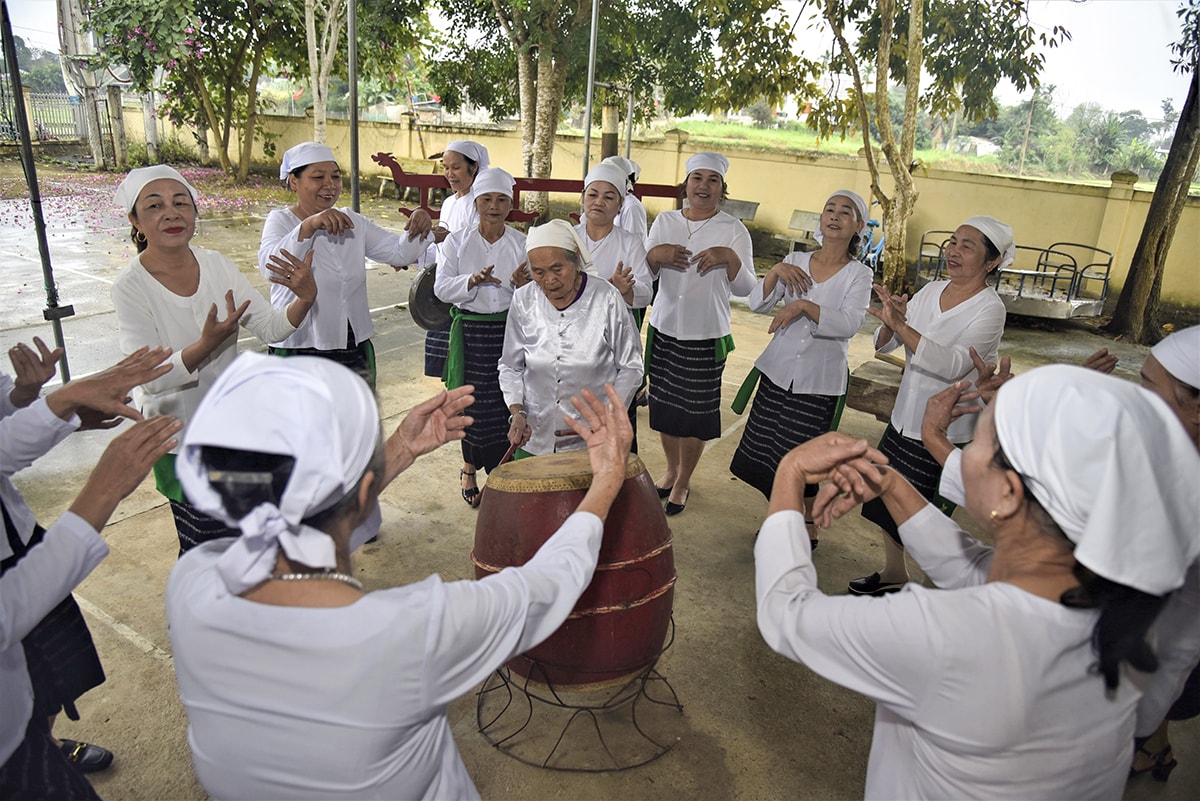
In particular, the model of teaching Thai and Mong ethnic languages and writing has been effectively implemented in some districts, attracting hundreds of students of all ages to participate every year, typically in districts such as Tuong Duong, Quy Chau, Quy Hop. In addition, traditional musical instruments are preserved and effectively promoted in the spiritual life of ethnic minorities; traditional brocade weaving and basketry have returned to the daily life of ethnic minorities; traditional ethnic costumes have been accepted by the young generation, making them proud of their ethnicity.
In addition to focusing on preserving and promoting traditional cultural values, the Department of Culture and Sports of Nghe An province also regularly directs the strengthening of information, propaganda and agitation work with many forms and rich content to prevent and eliminate backward customs in the lives of ethnic minorities. Up to now, there are almost no backward customs such as the custom of leaving the dead for a long time, early marriage, superstition, wife stealing, etc. Social evils and harmful cultural products such as drugs, gambling, prostitution, domestic violence, etc. are also controlled.

PV:To preserve and promote national cultural traditions and more effectively implement activities in response to "Vietnam Ethnic Culture Day", what solutions do you think are needed in the coming time?
Ms. Quach Thi Cuong:To promote good traditional cultural values, improve the spiritual and cultural life of ethnic people, especially ethnic minorities in remote areas, we need to continue to build a healthy and progressive cultural lifestyle in ethnic minority areas on the basis of promoting the movement "All people unite to build a cultural life in residential areas", focusing on improving the quality of the titles of Cultural Village and Cultural Family.
In addition, continue to improve the work of inventorying and establishing scientific records of intangible cultural heritage in the locality in a scientific and systematic manner, through documenting and materializing the cultural heritage system to identify and determine the level of existence, value and vitality of each type of cultural heritage in the community, on that basis, propose effective conservation and promotion plans. Strengthen propaganda and mobilize people to participate in protecting cultural heritage, integrate ethnic cultural activities into work, build cultural life at the grassroots level, in which, pay attention to the principle of "living preservation", that is, preserving intangible cultural forms right in community life. Have appropriate policies and regimes for talented artisans, individuals and families who have contributed to preserving national cultural assets.
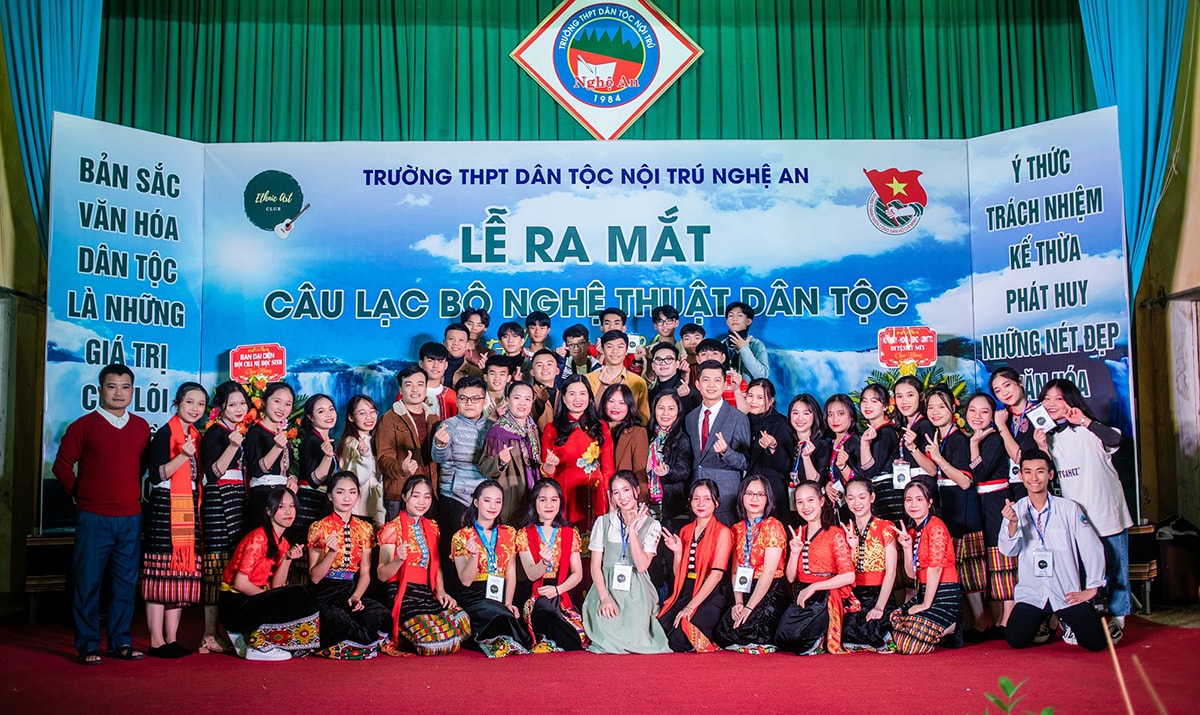
Along with that, strengthen the building of traditional art groups and teams, replicate model points and move towards guiding ethnic children to know how to use traditional musical instruments. Launch the creation of songs and dances for ethnic people to use in ceremonies, festivals, and harvest celebrations to gradually replace outdated customs and practices.
In addition, continue to organize major activities such as the Ethnic Culture and Sports Festival, Folk Song and Dance Festival, Ethnic Culture Exhibition, Ethnic Minority Singing Competition. It is necessary to have measures to help people preserve cultural heritages, preserve and promote traditional crafts and craft villages, types of folk language and traditional literature and art, preserve ethnic costumes, encourage wearing ethnic costumes on holidays, New Year... Select some typical villages and communes with convenient transportation, combine natural landscapes and typical traditional crafts to establish conservation and promotion projects associated with tourism activities, and experience community cultural ecology.
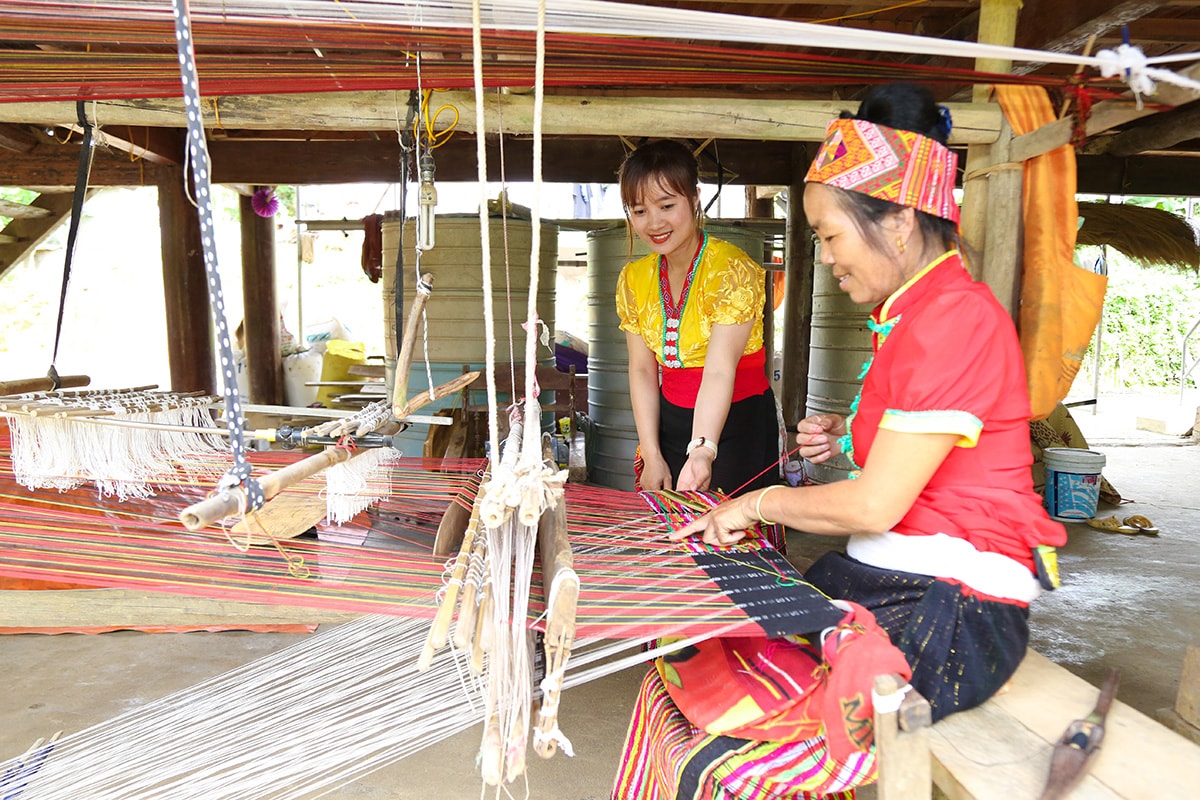
Another important solution is to focus on the orientation in directing and guiding the organization of traditional festivals and folk festivals, limiting and eliminating backward customs and superstitions. Research and promote the progressive values of customary law in the work of building cultural life in residential areas. Restore and enhance a number of typical festivals to organize annually.
In the coming time, the entire Department of Culture and Sports will continue to advise the Provincial People's Committee to effectively implement programs and projects on preserving ethnic culture in the area, especially the Project "Preserving and promoting fine traditional cultural values of ethnic minorities associated with tourism development" under the National Target Program on socio-economic development in ethnic minority and mountainous areas for the period 2021 - 2025.
PV:Thank you for this conversation!
